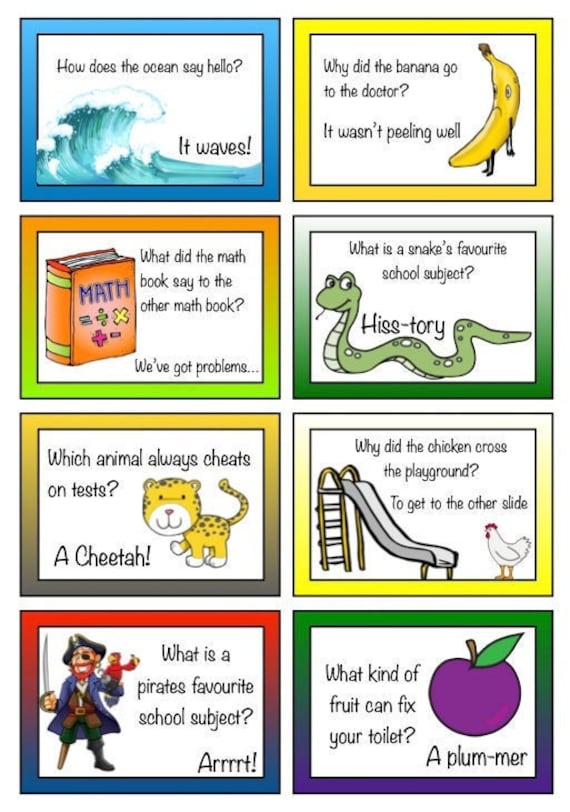Laughter is essential for students. It lightens the mood and helps learning.
Testing jokes for students can be a fun way to break the ice. Whether it’s a math test, a history quiz, or a simple classroom activity, jokes can turn a stressful situation into an enjoyable one. They can also strengthen the bond between students and teachers.
In this blog, we’ll explore some of the best jokes you can use to lighten up test days. These jokes are sure to bring a smile to any student’s face. So, let’s dive in and discover how humor can make learning more enjoyable!
The Power Of Humor In Learning
Laughter helps the brain to remember things better. Funny jokes make learning fun. Students laugh and relax, which helps them to focus. When they laugh, they are more likely to remember what they learned. Humor can make difficult subjects easier to understand.
Teachers can tell jokes related to the lesson. This makes the lesson more enjoyable. Students will look forward to the next joke. They will also look forward to learning more. Funny stories can also help. They keep students interested. They also make learning feel less like a chore.
Exams can be very stressful. Jokes can help to reduce this stress. Students who laugh are less likely to feel worried. They feel more relaxed and ready for the exam. Teachers can start the exam with a funny joke. This can help students feel calm. It can also help them to focus better.
Students can also tell jokes to each other. This can create a fun environment. It can make the exam time less scary. They can even use jokes to remember important points. Laughter can make the whole exam experience better. Happy students are more likely to do well.
Why Jokes Matter In Education
Jokes make learning fun. Students pay more attention. Laughing together helps them bond. Everyone feels more connected. This makes it easier to teach.
Jokes create a happy mood. A happy class is less stressed. They learn better. They remember more. A good laugh helps everyone feel relaxed. This makes the classroom a better place.
Types Of Jokes For Students
Math jokes can be fun. For example, why was six afraid of seven? Because seven eight (ate) nine. Science jokes also make students laugh. Why did the mushroom go to the party alone? Because he’s a fungi (fun guy).
General jokes are about school life. Why did the student bring a ladder to school? Because they wanted to go to high school. Another good one: why was the math book sad? It had too many problems.
Crafting The Perfect Study Joke
Knowing your audience is key. Students enjoy jokes that are simple and funny. Keep jokes short and clear. Complex jokes can confuse them. Stick to topics they know. Use school subjects like math or science. This makes jokes relatable.
Good jokes should also teach something. Mix facts with humor. Example: “Why was the math book sad? It had too many problems.” This joke is funny and connects to math. Avoid making jokes that can hurt feelings. Always keep the jokes positive.
Incorporating Jokes Into Study Sessions
Use jokes at the right time. Don’t interrupt serious moments. Wait for a natural pause. This keeps focus and fun. Students can relax and laugh.
Humor helps to refresh the mind. Take short breaks with jokes. This makes studying less stressful. Students enjoy learning more. Laughter boosts energy and mood.

Credit: www.etsy.com
Jokes To Use Before Exams
Exams can be stressful. Telling a joke can ease the tension. For example, “Why don’t scientists trust atoms?” Because they make up everything! This joke is simple and funny. It helps students relax and laugh.
Confidence is key before an exam. A funny joke can boost it. Try this one: “Why was the math book sad?” It had too many problems. Laughing makes students feel better. They remember that exams are just another challenge. A little humor can go a long way.
Using Humor In Group Studies
Jokes can help make group studies fun. Students can share funny stories. This makes everyone smile. Laughter helps reduce stress. It creates a happy environment. When students laugh, they feel more relaxed. They are more open to learning. Sharing jokes can build friendships. It strengthens group bonds. A strong group can study better together.
Humor can encourage shy students. They might feel more comfortable. A funny comment can break the ice. It makes students feel included. Everyone enjoys a good laugh. It helps keep the energy high. Students stay engaged. They are more likely to join in. This creates a lively study session. Everyone benefits from active participation.
Teacher-approved Jokes
Jokes must be safe for school. They should not be offensive or rude. Teachers prefer jokes that are clean and friendly. This keeps everyone happy and comfortable. Always choose jokes that are suitable for all ages.
A good joke can make learning fun. It helps students relax and engage. Teachers love jokes that make students laugh and learn. Keep it simple and respectful. This way, jokes can be a great part of the classroom.
Humor can make learning easier. It helps students remember information. Funny jokes can turn boring topics into fun ones. Laughter can reduce stress and make students feel better.
Jokes can also teach language skills. Students learn new words and phrases. They improve their understanding and speaking skills. Teachers use jokes to make lessons more interesting.
Avoiding Overuse Of Jokes
Finding the right balance with humor ensures students remain engaged without feeling overwhelmed. Testing jokes on students helps gauge their effectiveness and appropriateness.
Maintaining Focus
Jokes can be fun in class. But too many can break focus. Students might stop paying attention. It’s important to keep balance. Fun and learning should go hand in hand.
Balancing Fun And Learning
Mix jokes with lessons. Make sure students laugh but also learn. This way, they enjoy class and remember the lesson. Keep the mood light but stay on track.

Credit: www.musingsofahistorygal.com
Real-life Success Stories
Some students use jokes to study. They find it helps them remember facts. Humor makes learning fun. One student joked about math problems. This made the class laugh. They all remembered the solution. Another student used funny rhymes. It helped them recall history dates. Simple jokes can make a big difference.
Teachers also see the value of jokes. They use humor to keep students engaged. One teacher told a joke before each lesson. This made students look forward to class. Another teacher used funny examples in science. Students found it easier to understand. Jokes can make learning enjoyable for everyone.

Credit: confidencemeetsparenting.com
Frequently Asked Questions
What Are Some Funny Test Jokes For Students?
Students love jokes that relate to their daily school life. Test jokes often revolve around exam stress, tricky questions, and funny answers. They can lighten the mood during study sessions and make learning more enjoyable.
How Can Test Jokes Help Students?
Test jokes can relieve stress and anxiety. They provide a quick mental break, making it easier to focus. Laughter boosts mood and promotes a positive learning environment.
Are Test Jokes Appropriate For The Classroom?
Yes, when used appropriately, test jokes can be a fun way to engage students. They should be light-hearted, respectful, and inclusive, ensuring everyone can enjoy them.
Can Test Jokes Improve Learning?
Yes, humor can enhance memory retention and understanding. Jokes can make complex concepts simpler and more relatable. They keep students engaged and interested in the subject matter.
Conclusion
Testing jokes for students brings fun and learning together. It helps break the monotony of studies. Laughter fosters a positive classroom environment. This can boost student engagement and retention. Sharing jokes also enhances communication skills. Teachers and students bond over humor.
So, keep those jokes coming. They make learning more enjoyable. Remember, a little laughter goes a long way.


Comments